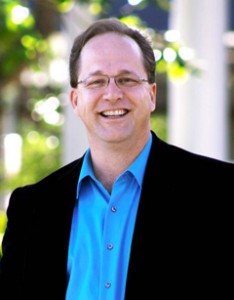October 27, 2011
Heavens Above: Space Exploration and the Religious Imagination
Jeff Kripal, Ph.D.
Department of Religious Studies
Rice University
LECTURE
7:00 pm
Herzstein Hall Amphitheater
There will be a reception before the lecture at 6:30 pm in 104 Herzstein Hall, the lounge adjacent to the Amphitheater.
ABSTRACT
For most of recorded history, human cultures have imagined, and encountered, the sacred as a power or presence that dwells “in the heavens,” that is, in the sky. Gods were essentially sky gods, and the different heavenly bodies—the sun, moon, and stars—were endowed with elaborate mythical and symbolic meanings. The universe was thought of as a series of concentric rings or “spheres,” the “seven heavens” of so much religious expression. This all began to change, and radically so, with Galileo and the Copernican Revolution, and it has continued to change with the advances of modern astronomy, astrophysics, and cosmology. But perhaps no series of events inspired and catalyzed the cultural and religious imagination more than the cold war space race and the ensuing Apollo space program. The technological, political, and social histories of these events are well known. What is less known is the profound effects these events had on the religious imagination and American popular culture.
In this lecture, Prof. Kripal will discuss how scholars of religion think about the relationship between the history of natural science and the religious imagination. He will address some of the most difficult and “impossible” moments in these modern interactions, including the rise of the UFO phenomenon, which he will discuss as a religious phenomenon. Finally, he will illustrate his ideas with examples drawn from the autobiographies of a science-fiction writer, an Apollo astronaut, a horror fiction writer, and a world-class scientist.
PROFESSIONAL BIO
Jeffrey J. Kripal holds the J. Newton Rayzor Chair in Philosophy and Religious Thought at Rice University, where he is also the Chair of the Department of Religious Studies. He is the author of Mutants and Mystics: Science Fiction, Superhero Comics, and the Paranormal (Chicago, 2011); Authors of the Impossible: The Paranormal and the Sacred (Chicago, 2010); Esalen: America and the Religion of No Religion (Chicago, 2007); The Serpent’s Gift: Gnostic Reflections on the Study of Religion (Chicago, 2007); Roads of Excess, Palaces of Wisdom: Eroticism and Reflexivity in the Study of Mysticism (Chicago, 2001); and Kali’s Child: The Mystical and the Erotic in the Life and Teachings of Ramakrishna (Chicago, 1995). He has also co-edited volumes with: Wouter Hanegraaff on eroticism and esotericism, Hidden Intercourse: Eros and Sexuality in the History of Western Esotericism (University of Amsterdam Press, 2008); Glenn W. Shuck on the history of Esalen and the American counterculture, On the Edge of the Future: Esalen and the Evolution of American Culture (Indiana, 2005); Rachel Fell McDermott on a popular Hindu goddess, Encountering Kali: In the Margins, at the Center, in the West (California, 2003); G. William Barnard on the ethical critique of mystical traditions, Crossing Boundaries: Essays on the Ethical Status of Mysticism (Seven Bridges, 2002); and T.G. Vaidyanathan of Bangalore, India, on the dialogue between psychoanalysis and Hinduism, Vishnu on Freud’s Desk: A Reader in Psychoanalysis and Hinduism (Oxford, 1999). His present areas of interest include the re-visioning and renewal of the comparative method in the study of religion, the comparative erotics of mystical literature, American countercultural translations of Asian religious traditions, and the history of Western esotericism from ancient Gnosticism to the New Age.



 Houston Spaceport
Houston Spaceport